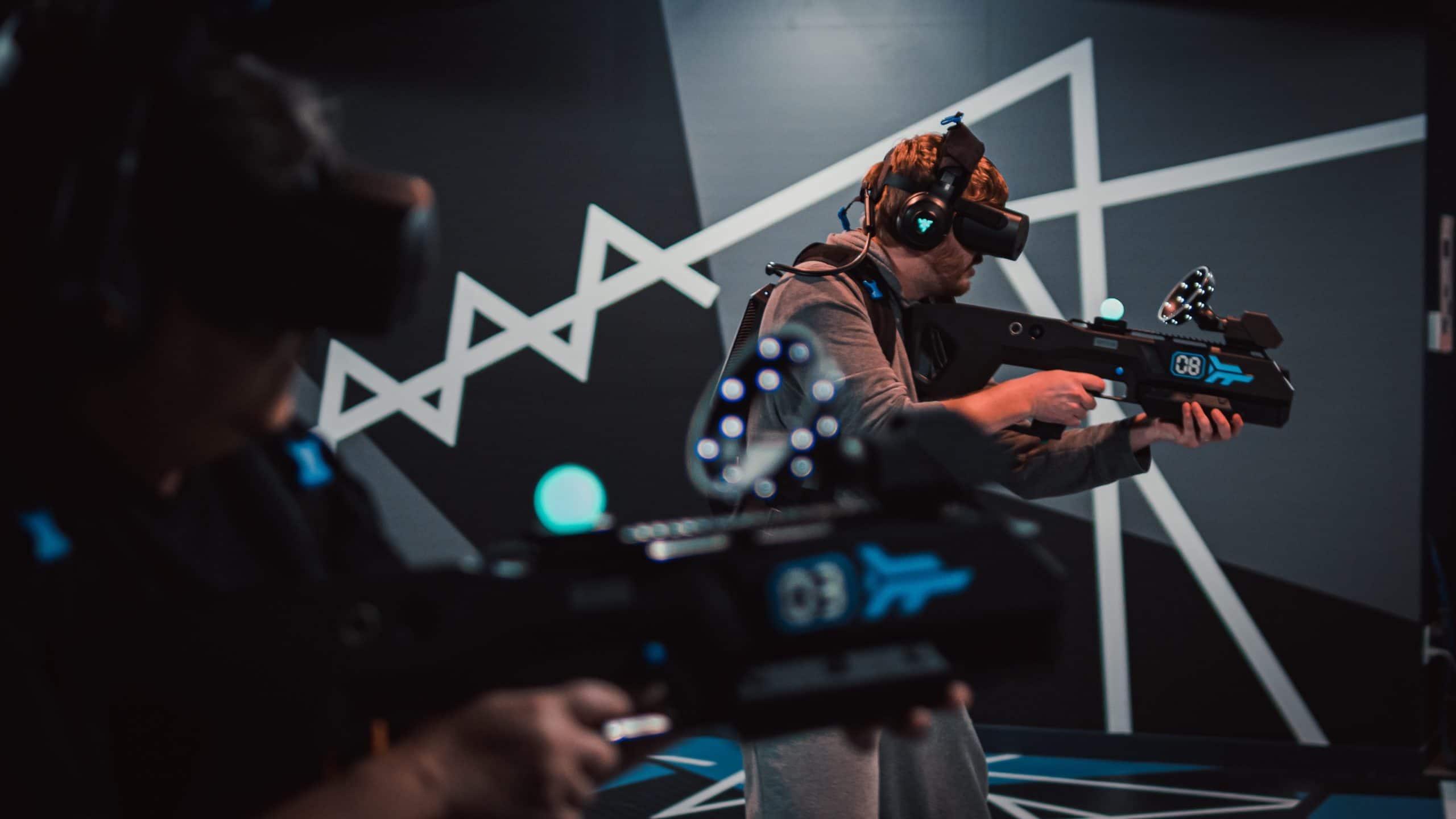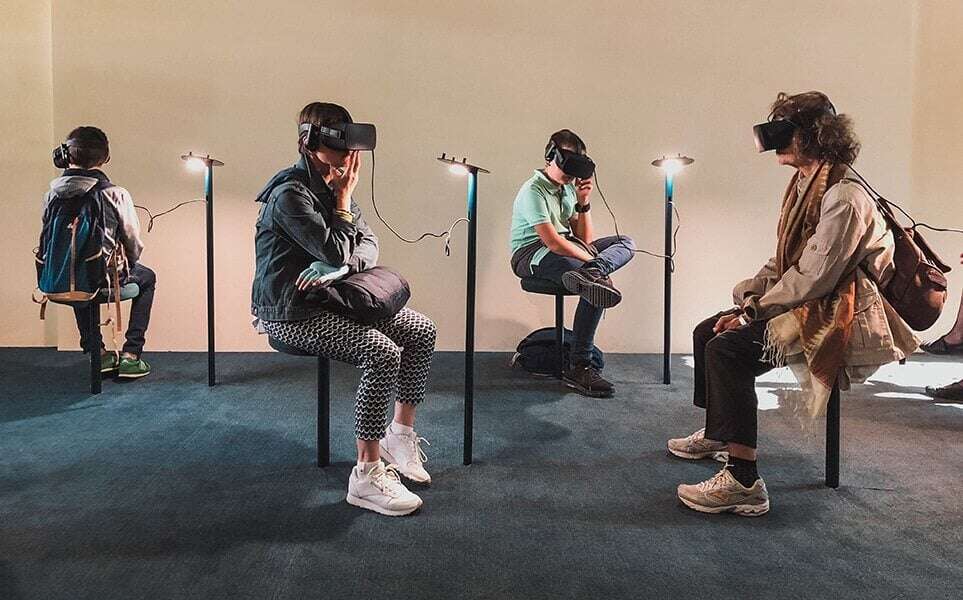What's Your Vision of the Metaverse?

The Visions of Leading Metaverse Builders
The biggest metaverse news in the general public has been Facebook's changing of its umbrella name to Meta, clearly looking to be the leader in creating the new virtual space. (The name Facebook continues as Meta's main social media app, along with WhatsApp and Instagram.) CEO Mark Zuckerberg has a very distinct vision in mind for the metaverse. He wants to create a new, immersive social hangout that makes people feel like they're in the same physical space when they're not. Actually, the Meta vision is an attempt to create an even better world than the one we know, since it won't necessarily be hampered by things like gravity or reality. Those attending a gathering can show up in the form of a robot and watch fish fly through the sky. In terms of immersive experiences, the metaverse is also a longstanding imagination of the video game and virtual reality industries. Video games like Roblox and Minecraft introduce kids to world-building, and adult gamers get an immersive experience in Fortnite. In the gaming realm, the metaverse is perhaps the next natural step as its experiences have become increasingly realistic. Microsoft's plans are the bridge between the use of this new space for gaming and for work applications. With Minecraft and its recent
acquisition of the video game company Activision Blizzard, Microsoft is paying attention to potential in this sphere. But it will have some work to do cleaning up (or distancing from) the bad reputation that Activision carries with it for misconduct allegations. Where the metaverse's potential really shines is in the other part of Microsoft's focus---what can be called the "
enterprise metaverse," or the place where companies put it to use for innovation and new kinds of productivity.
Microsoft's plans are the bridge between the use of this new space for gaming and for work applications. With Minecraft and its recent
acquisition of the video game company Activision Blizzard, Microsoft is paying attention to potential in this sphere. But it will have some work to do cleaning up (or distancing from) the bad reputation that Activision carries with it for misconduct allegations. Where the metaverse's potential really shines is in the other part of Microsoft's focus---what can be called the "
enterprise metaverse," or the place where companies put it to use for innovation and new kinds of productivity.
Best and Worst Potentials
In those work scenarios, the metaverse can allow for some helpful applications never before possible. The ability to create and use digital twins opens up new possibilities for research and project preparation. Digital replicas of vehicles, for example, can be used for design, assembly planning, and safety tests. Using digital twins in place of unnecessary physical items can potentially reduce global carbon dioxide emissions by 20%, and when they are applied to sustainability projects, they really can help save the world. There are all sorts of ways this technology can revolutionize medical research and practice as well. To my mind, these kinds of beneficial work applications make gaming and virtual socializing look embarrassingly superficial in comparison. Zuckerberg may act like he's trying to bring people together, but critics are right to wonder whether Meta's space will actually lead to alienation and depression---like
its social media platforms have been reported to do, particularly for young people (which make up its biggest target audience). Will we really feel more connected looking at each other as avatars in an illusory space? I imagine that entertainment in the metaverse will be an amplification of what gaming and social media already are now: a fun way to engage occasionally for those who know how to limit it, and an addictive and damaging habit for those who are more vulnerable to its novelty and escape. It's worth looking at the driving motives behind metaverse development too. As with any new technology, profits are part of the impetus. When that's paired with an aim to truly better the world or improve people's lives, it's not necessarily a problem. But how about
selling expensive virtual "merch" and
property to show off at metaverse meetups? Don't we have more important ways to direct our attention and money here in the real world?
To my mind, these kinds of beneficial work applications make gaming and virtual socializing look embarrassingly superficial in comparison. Zuckerberg may act like he's trying to bring people together, but critics are right to wonder whether Meta's space will actually lead to alienation and depression---like
its social media platforms have been reported to do, particularly for young people (which make up its biggest target audience). Will we really feel more connected looking at each other as avatars in an illusory space? I imagine that entertainment in the metaverse will be an amplification of what gaming and social media already are now: a fun way to engage occasionally for those who know how to limit it, and an addictive and damaging habit for those who are more vulnerable to its novelty and escape. It's worth looking at the driving motives behind metaverse development too. As with any new technology, profits are part of the impetus. When that's paired with an aim to truly better the world or improve people's lives, it's not necessarily a problem. But how about
selling expensive virtual "merch" and
property to show off at metaverse meetups? Don't we have more important ways to direct our attention and money here in the real world?
 In worst case scenarios, the metaverse could make our lives pretty sad---or downright scary. Too much distance from the natural world and the physicality of our bodies is likely to cause increased anxiety and poor health. Individuals could spend their days fumbling around under headsets instead of interacting with their households or physical communities. Predators may assume a false sense of freedom to unleash their violent or
sexually aggressive instincts---and those heightened instincts could spill back out into life outside the metaverse. And perhaps, once technology advances further, excessive time in virtualized spaces could eventually cause confusion and a new manner of mental illness.
In worst case scenarios, the metaverse could make our lives pretty sad---or downright scary. Too much distance from the natural world and the physicality of our bodies is likely to cause increased anxiety and poor health. Individuals could spend their days fumbling around under headsets instead of interacting with their households or physical communities. Predators may assume a false sense of freedom to unleash their violent or
sexually aggressive instincts---and those heightened instincts could spill back out into life outside the metaverse. And perhaps, once technology advances further, excessive time in virtualized spaces could eventually cause confusion and a new manner of mental illness.
Protecting Privacy and Creating Healthy Boundaries
Today, many parents set a "screen time" limit for their kids, acknowledging that too much of it isn't beneficial for their children's health and wellbeing. With the metaverse that will be fuzzier, since there won't always be such a clear screen separating users from the dopamine highs and crashes of what they're interacting with. Instead, we will have to work harder to create our boundaries. Both on individual and parental levels, we'll need to be clear about what we want out of the metaverse and what we don't want. Asking the same questions at the organizational and societal levels is a good idea as well. Like with artificial intelligence and internet practices, we need to have clear privacy measures in place and develop a standardized code of ethics. As this emerging future begins to unfold, let's make sure we're dreaming up and supporting a world we really want to live in. More like this:Stay connected. Join the Infused Innovations email list!
Share this
You May Also Like
These Related Posts
5 Tech Terms for 2022


5 Tech Terms for 2022
January 3, 2022
4
min read
Technology Highlights of 2021


Technology Highlights of 2021
December 27, 2021
4
min read
What Will Tomorrow's IT Workers Look Like?


What Will Tomorrow's IT Workers Look Like?
December 19, 2022
4
min read
No Comments Yet
Let us know what you think